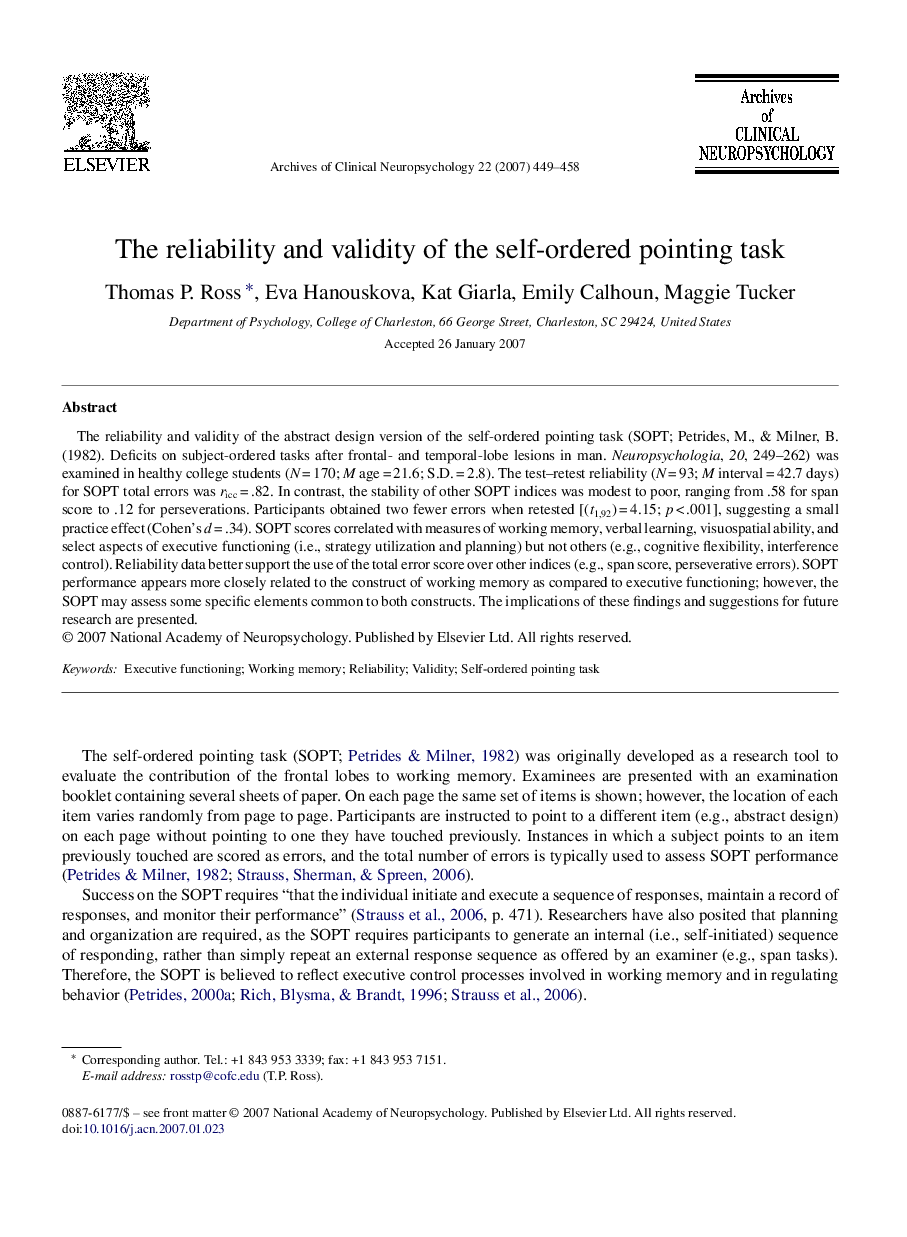| Article ID | Journal | Published Year | Pages | File Type |
|---|---|---|---|---|
| 901004 | Archives of Clinical Neuropsychology | 2007 | 10 Pages |
The reliability and validity of the abstract design version of the self-ordered pointing task (SOPT; Petrides, M., & Milner, B. (1982). Deficits on subject-ordered tasks after frontal- and temporal-lobe lesions in man. Neuropsychologia, 20, 249–262) was examined in healthy college students (N = 170; M age = 21.6; S.D. = 2.8). The test–retest reliability (N = 93; M interval = 42.7 days) for SOPT total errors was ricc = .82. In contrast, the stability of other SOPT indices was modest to poor, ranging from .58 for span score to .12 for perseverations. Participants obtained two fewer errors when retested [(t1,92) = 4.15; p < .001], suggesting a small practice effect (Cohen's d = .34). SOPT scores correlated with measures of working memory, verbal learning, visuospatial ability, and select aspects of executive functioning (i.e., strategy utilization and planning) but not others (e.g., cognitive flexibility, interference control). Reliability data better support the use of the total error score over other indices (e.g., span score, perseverative errors). SOPT performance appears more closely related to the construct of working memory as compared to executive functioning; however, the SOPT may assess some specific elements common to both constructs. The implications of these findings and suggestions for future research are presented.
